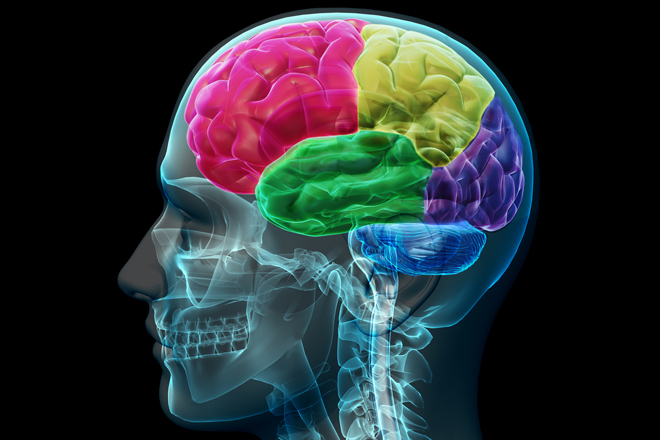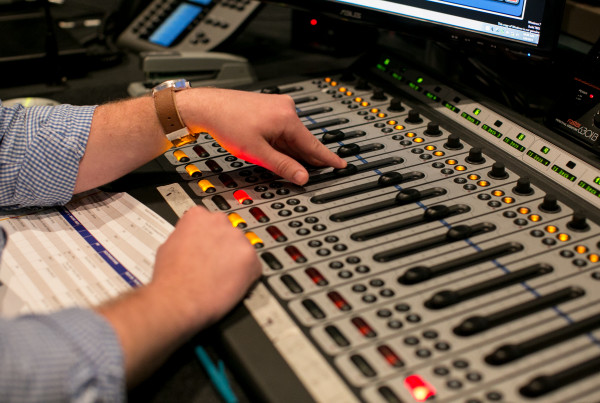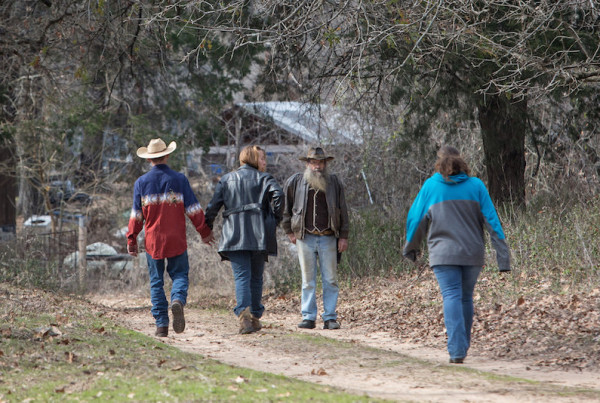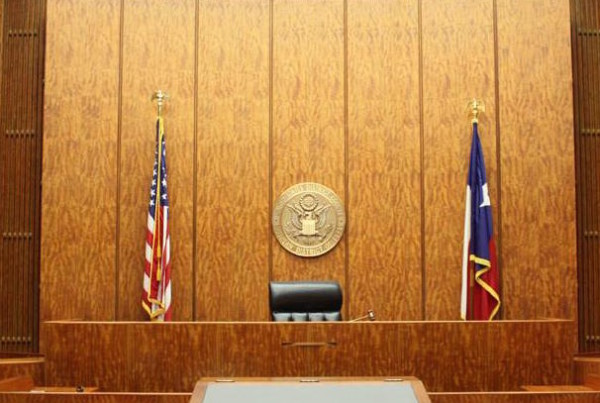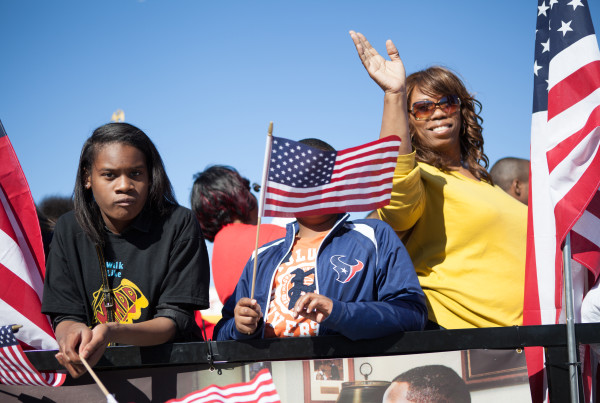This story originally appeared on Houston Public Media.
Growing concern about concussions has led to new rules in various sports, and a new movie starring Will Smith as a crusading doctor. But concussions are not easy injuries to treat – or even diagnose.
David Eagleman, a neuroscientist at Houston’s Baylor College of Medicine, has developed an iPad app called BrainCheck. It uses research-backed games to collect data on neurocognitive function, and is now available for download.
BrainCheck is based on simple screen games, like many apps. The seven games involve nothing more than the usual moves: swiping, tilting, or identifying colors or words.
“We can assess 11 different measures of what’s happening under the hood in terms of what your brain is doing,” Eagleman said.
As you play, the app digitally crunches the results – measuring skills like balance, reaction time, perception, coordination, or memory. It takes under five minutes, Eagleman said.
“It can be done at the sidelines of the game or it can be done in the emergency room or in the ambulance on the way to the emergency room,” he added.
BrainCheck just became available for download on the iPad. It’s free to try, but costs $5 a month if you want to save your brain’s baseline “score” and have it ready for comparison after an athletic injury.
Jeff Lemley recently tried BrainCheck at the Texas Medical Center. Lemley works with first responders, and he’s curious about whether the app might be helpful in the hands of paramedics.
“I’m going to try out this brain test, see if I’m as smart as I think I am,” he said.
Amy Ewbank, a project manager for BrainCheck, loaded the app and handed over the tablet.
“Are you feeling impaired today or are you feeling like this is probably a good snapshot of your healthy brain?” Ewbank asked.
“Hopefully, it’s a good snapshot,” Lemley said. He knocked on the table for luck and laughed.
Lemley sat down for a few games, then stood up for a coordination test. He held the iPad at arm’s length and tilted it back and forth, trying to flip a digital ball into a virtual cup.
“Oh poop. Oh no,” he said. “Oh, this is going to be bad.”
The CEO of BrainCheck, Yael Katz, stood nearby, watching the test.
Katz acknowledged there are a lot of memory and brain apps and games out there.
But she says BrainCheck will stand out because it is based on cognitive tests that are backed by research and considered the “gold standard” in neuroscience.
The company is also voluntarily submitting the app for clearance by the Food and Drug Administration, she said.
“A lot of athletes are interested in this to track themselves, parents are interested in tracking their children,” Katz said.
Katz said “track” and not “diagnose” because there is no definitive medical test for a concussion. Physicians diagnose concussion through tests, questioning, and a physical examination.
But Katz said the app can track changes in the brain over time, and alert users when cognitive skills drop below baseline, or change suddenly.
That means coaches can test their athletes throughout the season. Someone who did get knocked on the head could consult the app as they rest and heal.
“If somebody has had a concussion, (they can) actually track their recovery… watch and see how their scores are returning to baseline,” Katz said. “It’s kind of like a diary where a person can kind of have an objective log of how they’re doing over time, and that can really facilitate conversations with physicians.”
BrainCheck the company is still in start-up mode, raising money to grow and expand.
David Eagleman said he can envision a day when the app could be used by professional football teams, as well as college and high school teams. The NFL currently has a sideline assessment for concussions, but Eagleman said it’s easy to cheat on and not as comprehensive as BrainCheck. The NFL also uses team physicians and specialists to monitor their athletes, something that local high schools cannot afford to do.
The app is already being used on a pilot basis in several Houston school districts, like Katy, Spring and the KIPP charter network.
The company is also looking at applications beyond athletics. For example, a future version of the app will assess something called “work readiness.”
Think of that as breathalyzer for the brain – a suite of tests that can indicate whether an airplane pilot got enough sleep, or whether a bus driver is still suffering from the effects of a hangover.
Last fall, Katz pitched the idea to a group of investors, citing the potential size of the corporate market.
“Oil and gas and trucking companies have approached us about integrating brain check into their enterprise software as a safety component,” Katz said. “We’re exploring integrations with wearables, as well as partnerships with insurance companies.”
In the future, a third version of the app will test the brain for signs of dementia or deterioration. That’s important, because the current medications for memory loss only work when dementia is diagnosed early on.


